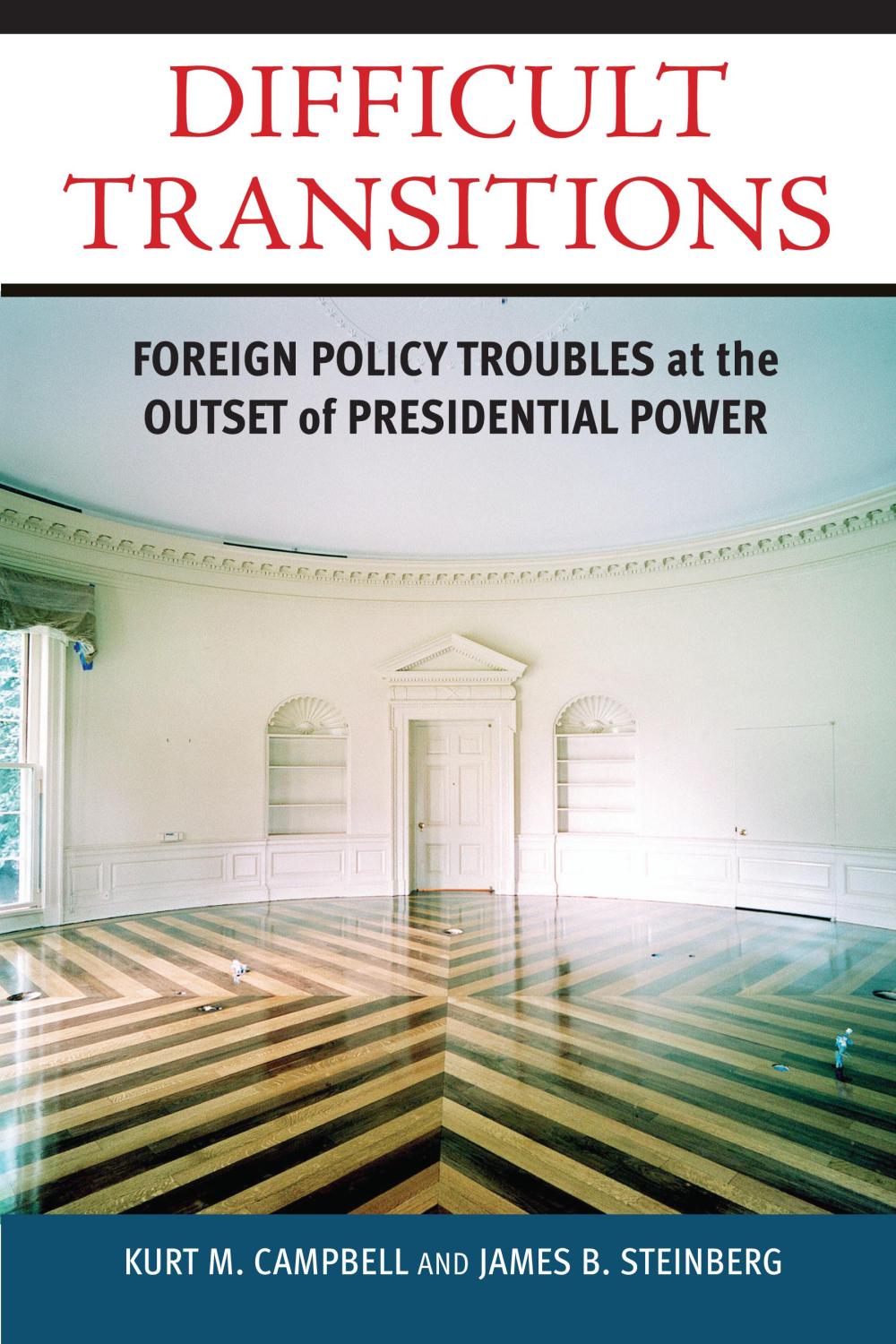


Book
New presidents have no honeymoon when it comes to foreign policy. Less than three months into his presidency, for example, John F. Kennedy authorized the disastrous effort to overthrow Fidel...
New presidents have no honeymoon when it comes to foreign policy. Less than three months into his presidency, for example, John F. Kennedy authorized the disastrous effort to overthrow Fidel Castro at the Bay of Pigs. More recently, George W. Bush had been in office for less than eight months when he was faced with the attacks of September 11. How should an incoming president prepare for the foreign policy challenges that lie immediately ahead? That’s the question Kurt Campbell and James Steinberg tackle in this compelling book. Drawing on their decades of government service—in the corridors of Capitol Hill, the intimate confines of the White House, the State Department, and the bare-knuckles Pentagon bureaucracy—Campbell and Steinberg identify the major foreign policy pitfalls that face a new presidential administration. They explain clearly and concisely what it takes to get foreign policy right from the start. The authors set the scene with a historical overview of presidential transitions and foreign policy including case studies of such prominent episodes as the “Black Hawk Down” tragedy in Somalia that shook the Clinton administration in its first year and the Bush administration’s handling of the collision between a U.S. reconnaissance plane and a Chinese fighter jet in the spring of 2001. They pinpoint the leading causes of foreign policy fiascos, including the tendency to write off the policies of the outgoing administration and the failure to appreciate the differences between campaign promises and policy realities. Most important, they provide a road map to help the new administration steer clear of the land mines ahead. America’s next president will confront critical foreign policy decisions from day one. Dif ficult Transitions provides essential guidance for getting those choices right.
Related Books

Martin S. Indyk, Kenneth G. Lieberthal, Michael E. O’Hanlon
September 4, 2013

Marvin Kalb
May 10, 2013

Marvin Kalb, Deborah Kalb
August 22, 2012
Authors
Kurt M. Campbell is CEO and cofounder of the Center for a New American Security. He served as deputy assistant secretary of defense for Asia and the Pacific in the Clinton administration. Before that, he taught at Harvard University's John F. Kennedy School of Government and served in the Navy. His books include Climatic Cataclysm: The Foreign Policy and National Security Implications of Climate Change (Brookings, 2008) and Hard Power:The New Politics of National Security, written with Michael O'Hanlon (Basic Books, 2006). James B. Steinberg is dean of the LBJ School of Government at the University of Texas–Austin. A former director of Foreign Policy Studies at the Brookings Institution, he was deputy national security adviser to President Clinton from 1996 to 2000. He previously served as director of the State Department's Policy Planning Staff and as deputy assistant secretary of state, with responsibility for the Bureau of Intelligence and Research. His books include Protecting the Homeland 2006/2007, written with Michael d'Arcy, Michael O'Hanlon, Peter Orszag, and Jeremy Shapiro (Brookings, 2006).